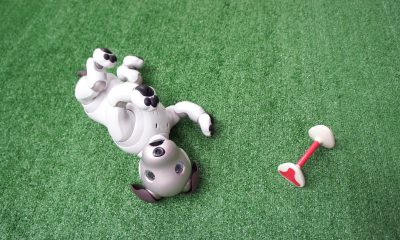As you get older, your brain — like the rest of your body — starts to experience some of the physiological effects of aging. Unfortunately, this can mean you may begin having some problems with mental functions, especially memory.
For centuries, if not millennia, people have been aware that as you age, you may start having more trouble remembering new information. While older memories — especially autobiographical memories about your life and experiences — usually remain intact for a long time, you may start having trouble remembering things you learned recently.
This can mean forgetting appointments, forgetting the names of people you met recently, and things like that. It’s subtle at first, but can get worse over time if you don’t take measures to counteract it.
Fortunately, there are steps you can take to help prevent memory loss, and to prevent existing memory problems from getting worse over time.
Keep in mind that while physicians will recommend these things too, they’re no substitute for talking to your doctor about getting evaluated for mild cognitive impairment, Alzheimer’s disease, and other age-related neurological problems that could be causing memory loss beyond what’s normal for someone your age.
Improve Your Diet
Healthy eating is even more important as you get older. Nutrition does affect brain function — both directly, and indirectly, by impacting other things like your cardiovascular health.
One of the best things you can do for yourself is improve your diet. If you’re not sure how to do this, ask your general practitioner for recommendations. They may even be able to refer you to a dietician.
A healthy diet should consist of lean protein, “healthy” fats, whole grains, and plenty of fiber. If you’re eating a lot of fast food, deep fried foods, or junk food, cutting it out and replacing it with healthier choices can go a long way toward helping you feel your best — mentally and physically.

Get Some Exercise Regularly
Human bodies are “designed” to be active, and being too sedentary isn’t good for you at all. You don’t need to be a serious athlete or anything, but your body needs some kind of activity. This can be as simple as taking an hour long walk each evening. The National Health Service recommends at least half an hour a day of cardiovascular exercise.
Just taking walks can make a difference. It’s okay to start small, especially if you’re out of shape, and have been for a long time.
Be Social
Socializing keeps your brain active and engaged. It’s okay to be introverted, and not the most social person. But overall, it’s good for your mental and neurological health to find some way to socialize at least a little bit, on a regular basis.
You can find meetup groups online through Facebook, Meetup.com, and other platforms, helping you connect with people who share your hobbies and interests. Many community centers also offer social activities specifically for seniors.
Make Sure You’re Getting Enough Sleep
Along with a healthy diet, healthy sleep is essential for maintaining your brain function. It doesn’t take much missed or disrupted sleep to cause problems.
Both quality and quantity of sleep are important. Some common medications that can help you get to sleep if you have insomnia, can actually harm your sleep cycle by disrupting your sleep architecture. This means you aren’t progressing properly through the four phases of sleep, and it can make you feel mentally “foggy” and unable to focus.
These medications can include over the counter medications like diphenhydramine (Benadryl) and doxylamine (the sedative ingredient in Nyquil). Prescription sleep aids like Ambien and Lunesta can also alter sleep architecture, making them unsuitable for long term use.
If you’re having trouble sleeping, common causes can include too much caffeine too close to bedtime, or even exercising too late in the evening. If you can’t figure out the cause of your sleep disruption, talk to your doctor, as there are many possible medical reasons.
Keep Your Mind Active
Along with staying social and making sure you get enough sleep, other ways of staying mentally active are also important. This could be as simple as something like Sudoku or crossword puzzles. You can also look into things like learning a new language, taking community college classes in something you’re interested in, or even learning a new branch of mathematics.
Try Online “Brain Games”
Lumosity and other companies provide online “brain games” designed to help target and strengthen specific cognitive functions. While it isn’t known how effective these games really are, it certainly can’t hurt. It can also help you improve your proficiency in certain kinds of tasks where you’ve always been a little weak.
Healthy Brains and Bodies are Essential as You Age
As you get older, taking care of your body — including your brain — becomes more and more important. Maintaining a healthy lifestyle can help you prevent and delay the onset of memory problems and cognitive impairment, which often arise in people as they get older.
Senior Care Center is here to provide you with the information you need to upkeep and improve your health as you live out your golden years. Read more on how you can thrive in your golden years here.




